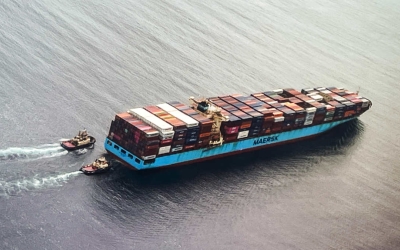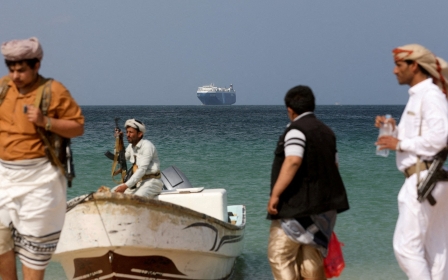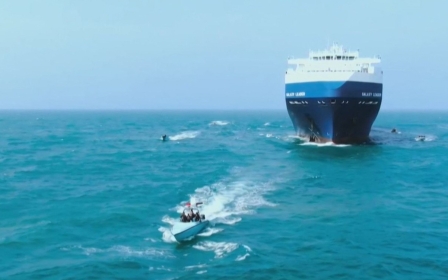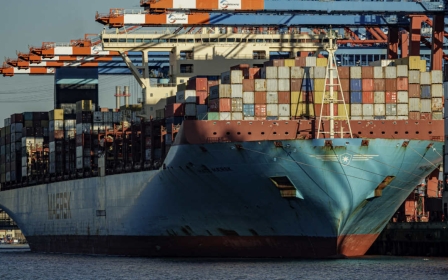Israel-Palestine war: Shipping giant Hapag-Lloyd will continue to avoid Red Sea amid Houthi attacks
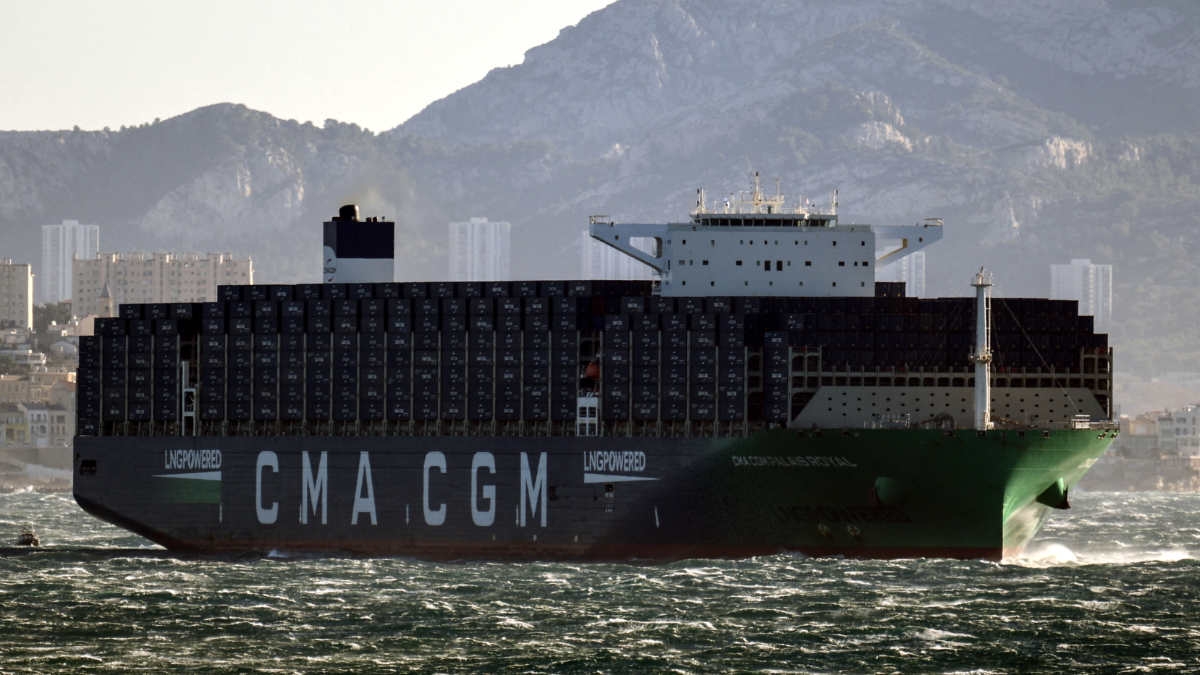
Shipping giant Hapag-Lloyd AG will keep diverting vessels from the Red Sea, even as other container companies announce plans to restart transit through the waterway.
The German shipping company said it was continuing to assess the situation in the Red Sea, as a new US-led task force deploys to the area to provide enhanced maritime security.
The US announced the task force last week in response to a series of missile and drone attacks by the Houthis, which the Iran-aligned group said were a response to the Israeli assault on Gaza.
The US says the Houthis have launched more than 100 drone and missile attacks on at least 10 commercial vessels in the Red Sea, disrupting global trade flows and sending shipping costs higher, particularly for container ships hauling goods between Europe and Asia.
Maersk said on Sunday that its vessels would resume sailing in the area because of the new US-led task force. However, other ship owners and operators have been more cautious.
Stay informed with MEE's newsletters
Sign up to get the latest alerts, insights and analysis, starting with Turkey Unpacked
Despite the deployment of the new task force, on Tuesday the Mediterranean Shipping Company said one of its container ships was attacked while en route to Pakistan from Saudi Arabia. The Switzerland-based company said it will continue to divert vessels on the longer journey around the Cape of Good Hope in Africa to avoid the Red Sea.
The Houthis say they are only targeting Israeli-linked ships, but many with no apparent ties to Israel have been struck.
Meanwhile, the US has been busy trying to secure the waterway, which is a chokepoint for 12 percent of global trade.
Houthis fire a dozen drones in 10 hours
MEE previously reported that Biden administration officials faced a predicament as they scrambled for a way to deter the Houthis without endangering peace talks between the group and Saudi Arabia, along with a wider de-escalation of tensions between Tehran and Riyadh.
Some in Washington called for the US to launch retaliatory strikes against the Houthis, but with the new US-led naval task force, Operation Prosperity Guardian, the US has opted for a more defensive approach, responding to distress calls from commercial vessels and shooting down drones and missiles.
On Tuesday, US Central Command said its Eisenhower Carrier Strike Group shot down twelve one-way attack drones, three anti-ship ballistic missiles, and two land attack cruise missiles fired by the Houthis in the southern Red Sea over a period of 10 hours.
The Houthi attacks have bolstered the bottom lines of shipping companies and vessel owners, who analysts say benefit from the longer travel times around Africa, but have led to higher freight costs for customers.
The Red Sea is also a key artery for the shipment of global energy supplies, with nine percent of global crude oil and petroleum products passing through the Bab al-Mandab straight in the south.
While some energy companies such as BP say they are avoiding the waterway - a move that supports energy prices - a big chunk of the oil transiting through the Red Sea is Russian crude heading to Asia.
Some industry experts say the Houthis are unlikely to purposefully target vessels carrying Russian crude, given Moscow’s cozy ties to Iran.
Brent Crude prices have nudged up somewhat as Houthi attacks intensified, but the international benchmark was trading down about one percent on Wednesday at $80.05 per barrel.
As the end of 2023 approaches, oil is on track to chalk up its first annual decline in price since 2020.
Middle East Eye delivers independent and unrivalled coverage and analysis of the Middle East, North Africa and beyond. To learn more about republishing this content and the associated fees, please fill out this form. More about MEE can be found here.


